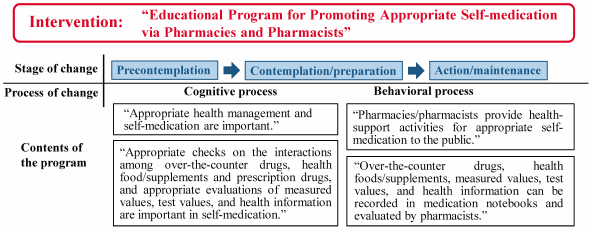- 著者
- Yoshihiro Noguchi Ikuto Sugita Yuta Hayashi Aki Yoshida Anri Ueno Manami Ohtubo Hayato Katsuno Hiroki Esaki Kousuke Saito Tomoya Tachi Hitomi Teramachi
- 出版者
- Japanese Society of Drug Informatics
- 雑誌
- Iyakuhin Johogaku (ISSN:13451464)
- 巻号頁・発行日
- vol.19, no.3, pp.127-132, 2017 (Released:2017-12-27)
- 参考文献数
- 18
Objective: Gastrointestinal tract injury associated with non-steroidal anti-inflammatory drugs (NSAIDs) remains a clinically significant problem. Therefore, evaluate using the signal detection that is also used clinically and report attention concerning the assessment of known adverse drug events.Methods: In this study, we analyzed data on the serious adverse event gastrointestinal tract injury collected from 2004 to 2013 using Japanese Adverse Drug Event Report (JADER). The indicated drugs were classified into 12 NSAIDs based on COX selectivity.Results: In the usual analysis, several COX-1 selective NSAIDs were detected, but the signals of aspirin and the COX-2-selective NSAIDs etodolac and meloxicam associated with gastrointestinal tract injury were detected using ad hoc analysis.Conclusion: Since the signal value is calculated from the data obtained from the spontaneous reporting system, it is influenced by the clinical use situation at the time of investigation. Therefore, the signal value decreases if the risk, for which a countermeasure has been established, is high. This result does not indicate that COX-1 selective NSAIDs are pharmacologically less risk of gastrointestinal tract injury than COX-2 selective NSAIDs. There is a need to focus risk on emphasis on NSAIDs signal detected by ad hoc analysis.
- 著者
- Tomoya Tachi Yoshihiro Noguchi Hitomi Teramachi
- 出版者
- The Pharmaceutical Society of Japan
- 雑誌
- Biological and Pharmaceutical Bulletin (ISSN:09186158)
- 巻号頁・発行日
- vol.43, no.1, pp.77-86, 2020-01-01 (Released:2020-01-01)
- 参考文献数
- 38
- 被引用文献数
- 2
Utilization of community pharmacies/pharmacists is important for promoting appropriate self-medication; however, appropriate self-medication via pharmacies/pharmacists has not been well-implemented in Japan. Based on the transtheoretical model of health behavior change, we constructed an Educational Program for Promoting Appropriate Self-medication via Pharmacies and Pharmacists to inform the public about the assistive services of pharmacies/pharmacists regarding self-medication and the use of medication notebooks for self-medications. We then tested the efficacy of the program through a randomized controlled trial. The subjects were residents living around Gifu City, aged 20 years and above, and recruited through posters and pamphlets. The subjects were randomly allocated to a group that received only a medication/health class (control group) or one that received the medication/health class, as well as the educational program (intervention group). A questionnaire was administered immediately before the medication/health class (T1) and 2 months afterwards (T2), which allowed us to evaluate and compare the changes in the two groups’ behavior regarding performing appropriate self-medication via pharmacies/pharmacists. The percentage of people who began consulting with pharmacists concerning self-medication was significantly higher among the intervention group (38.2%, 13/34) than the control group (14.3%, 4/28) (p = 0.047). The percentage of people who began recording details of self-medication in their medication notebooks was significantly higher among the intervention group (38.2%, 13/34) than the control group (10.7%, 3/28) (p = 0.019). The educational program effectively encouraged the public to adopt appropriate self-medication practices to avail the services provided by pharmacies/pharmacists.
- 著者
- Eiseki Usami Michio Kimura Tomoaki Yoshimura Tadashi Yasuda Hitomi Teramachi Tadashi Sugiyama Teruo Tsuchiya
- 出版者
- 日本医療薬学会
- 雑誌
- 医療薬学 (ISSN:1346342X)
- 巻号頁・発行日
- vol.38, no.5, pp.282-287, 2012-05-10 (Released:2013-05-10)
- 参考文献数
- 14
Steroids are used in the treatment of patients with non-Hodgkin's lymphoma (NHL) as a one off high dose and are a key antitumor medication. Although the duration of steroid administration is short, Steroid Withdrawal Syndrome (SWS) has been documented after treatment. The aim of this retrospective study was to evaluate the prevalence of SWS and to assess the relevance of steroid tapering in 116 patients newly diagnosed with NHL. The most significant symptoms of SWS documented were fatigue in 70 patients (60.3%) and anorexia in 32 (27.6%). Four elderly patients (3.4%) suffered with serious SWS symptoms of grade 3. Of the 70 patients suffering with SWS, 22 went on to receive tapered steroid therapy during the subsequent chemotherapy treatment. The average steroid tapering period was 4.4 days and 86.4%patients reported a significant improvement of their SWS symptoms. No serious adverse events were noted. Although age did not appear to be a risk factor of SWS it was noted that elderly patients with SWS were more adversely affected.We conclude that steroid tapering is a safe and effective treatment method. If the patient has serious symptoms of SWS we should introduce steroid tapering aggressively and early, especially in elderly patients.
